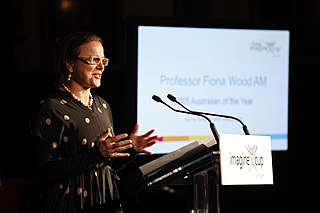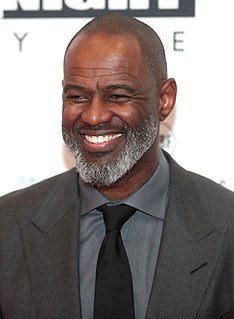A Quote by Michael Ian Black
I take it for what it is, and sometimes the criticism is actually useful and constructive and actually informs what I do, but most of the time, it's sort of mindless, or they're receiving something on a different frequency than I was sending it.
Related Quotes
Being able to influence the outcome, being able to do something about it, to be able to stop the bleeding. You're not being useful if you're just standing there going "Oh, that's awful!" You're only useful if you actually do something about it and I think that goes for everything. If you actually do something about what's in front of you, then you are actually contributing and you haven't got time to be self-centred or sorry for yourself. You should be doing something about the person you really should feel sorry for.
I don't want to get too dippy about all this. If you take the view of the scientist and everything is in a state of vibration, then every note is a vibration, which has a certain frequency, and you know that if you put 40 beats into a frequency it's going to be the same note every time. You take that into infrasound and people can be made to be sick, actually killed. Taking it the other way, not to be too depressing, what about euphoria, etc., and what about consciousness being totally... no, I won't go into that one. Time warps.
It's almost weirder sometimes when you don't have a full life experience with someone's ups and downs, knowing what they've been through. Sometimes a loss that just comes out of left field rings in a very weird way when you have actually sort of relied on this small moment with this or that person, as a moment that actually has defined something for you in your life.
I don't have a very high opinion, actually, of the world of criticism - or the practice of criticism. I think I admire art criticism, criticism of painting and sculpture, far more than I do that of say films and books, literary or film criticism. But I don't much like the practice. I think there are an awful lot of bad people in it.
You gotta deal with a lot of people, the naysayers... but I've always been the guy who kinda just smiles and laughs at it. I use it as constructive criticism to be honest. Whether they're intentionally trying to be kind of spiteful or not, it's constructive criticism because you can't say there's always truth to it but there's definitely something.
[Toby Jones] is completely different. It's a completely different character. He's the darkest villain we've had. There was always something charming and engaging about Moriarty. There was something fascinating and actually amoral, rather than immoral, about Charles Augustus Magnussen. This guy is the purest evil. Sherlock [Holmes] is actually appalled by him.
I chose to go to Arizona, because it was an opportunity to make something that I've never done. To work with different people and to have a good time when you're recording and to not have the whole thing be some sort of editing process in front of a computer, but to actually try and capture some sort of spirit.
































